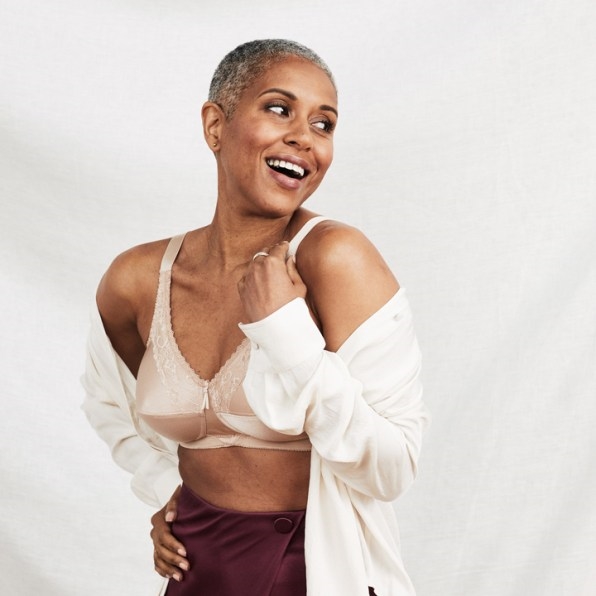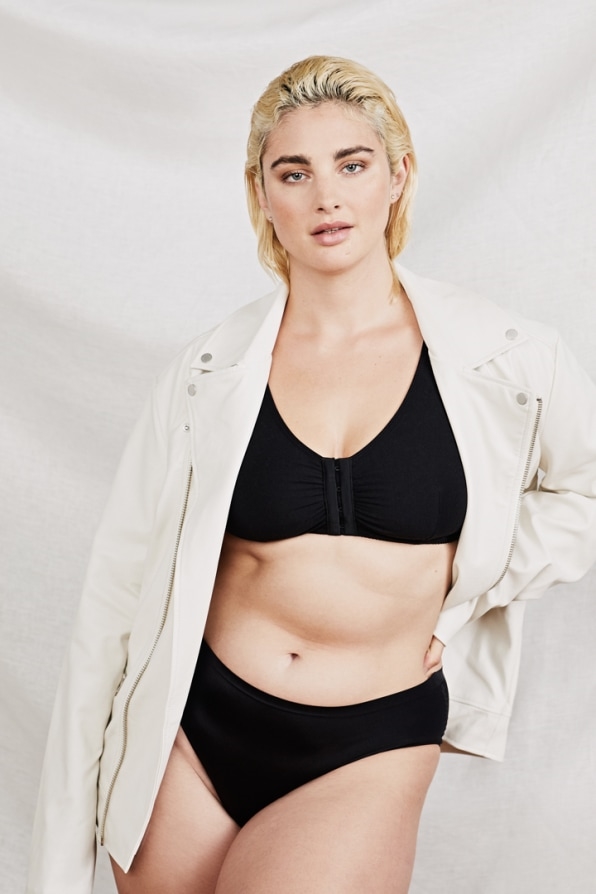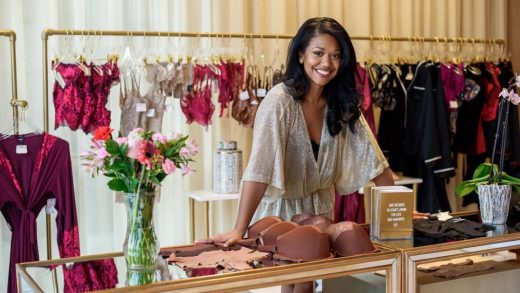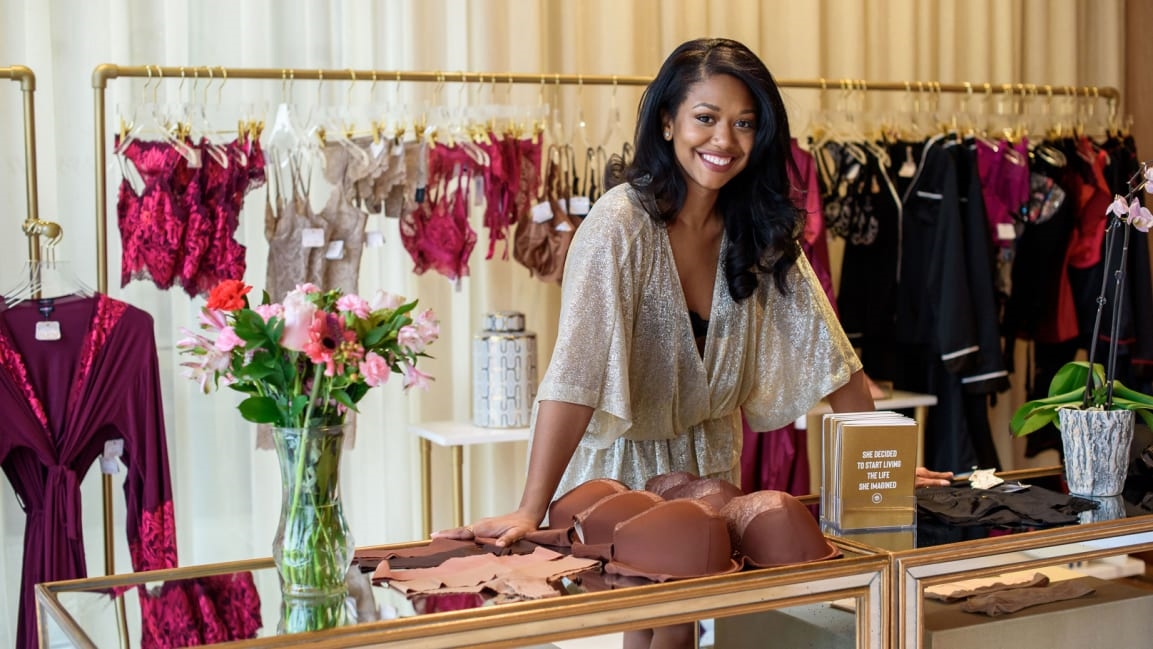13% of women will get breast cancer. They deserve better bras
One in eight American women will develop breast cancer in their lifetimes. And when they do, most of them will have part or all of their breast tissue surgically removed. This makes it hard to find comfortable, let alone attractive, bras.
This is something Jasmine Jones remembers from her childhood, when her grandmother had breast cancer. After dealing with the trauma of getting the diagnosis and then having a double mastectomy, she had to deal with the indignity of bra shopping.
“She was always so chic and well-dressed,” Jones says. “Then she basically had to buy bras and prosthetics from a medical supply store, next to the adult diapers. It was terrible.” Things haven’t changed much over the decades, Jones says. So she decided to do something about it.
The brand is designed to give women comfort and dignity as they deal with the stress and anxiety of a terrifying diagnosis, but it’s also a business opportunity that addresses the needs of millions of underserved breast cancer patients.

Before launching Myya, Jones analyzed the market to see what options existed for breast cancer patients looking for bras and prosthetics. Women tended to buy these products from medical supply shops or hospitals; she couldn’t find a single outlet that mimicked the experience of a lingerie store. Jones piloted the concept of a high-end retail store for her target shopper outside D.C. called Cherry Blossom Intimates.
But the bras are specifically designed for the needs of breast cancer patients, with pockets that can fit a prosthetic breast form. A 3D printer can make custom breast prostheses from silicone that look like the part of the breast the customer has lost. And importantly, every staff member is well-versed in health insurance and can handle the medical billing on a customer’s behalf.
In her 20s, Jones worked at Nordstrom and Tiffany & Co., where she learned how to create a luxurious customer experience. After college, she attended the Fashion Institute of Technology and began dreaming up the concept of Myya. When she was ready to launch her own business, she visited lingerie boutiques in Paris and paid attention to how they made customers feel special.
“The most important thing is having an expert fit you for a bra that is comfortable and that also makes you feel beautiful,” Jones says. “You also want staff who remember you, who greet you by name when you come into the store, and who call you when new product comes in that you’ll love.”

Jones had always planned to create an online experience that mimicked the in-store one. In 2020, when the pandemic hit and her store had to close, she felt a new urgency. When a woman comes to the Myya website, she’s assigned to one of the brand’s six full-time certified mastectomy fitters who will schedule a virtual visit. The customer discusses her specific needs but doesn’t need to undress. Then Myya sends a set of bras and several prostheses that can be tried on at home. Any that the customer doesn’t like can be returned for free.
“Our experts are trained to make sure that women with mastectomies have bras that make them feel balanced, so they don’t experience back, shoulder, or chest pain,” Jones says.
As an African American woman, Jones is particularly focused on making the products as inclusive as possible. She creates silicone prostheses in a of range colors to match many skin tones. And the bras come in more than 200 sizes, from AA to N cups, and from 28 through 54 bands. Jones has also spent the last few years designing an in-house line of bras using soft materials that come in a wide array of colors, including nudes for women of all complexions. Her collection is available on Myya and she’s building out a design department to continue developing this line.
None of the products have price tags because Jones sells only bras and prosthetics that are covered by health insurance. In 1998, a law was passed that said insurers had to provide breast cancer patients with bras and prosthetics. (Today, most providers pay for 12 bras and two sets of prosthetics.) But Jones says many patients aren’t aware of what they’re entitled to.
“My family paid for these items out of pocket, and they can get expensive,” she says. “Knowing about the 1998 healthcare law would have made our lives a lot easier. I believe it’s up to me to advocate for breast cancer survivors and let them know that they are entitled to these benefits.”
Fast Company , Read Full Story
(24)



